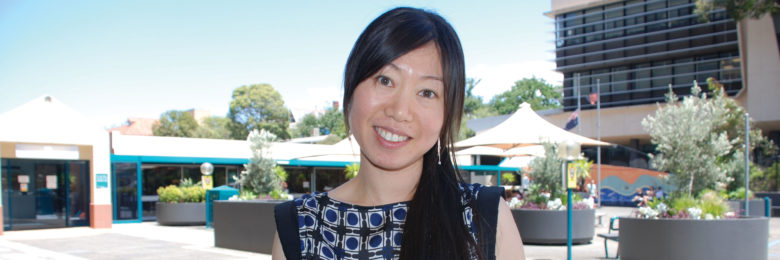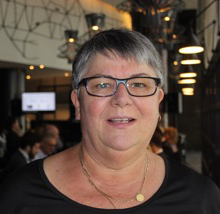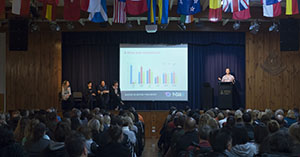
Psychologist, Dr Hanna Cheng
The Austin Hospital’s child and adolescent psychiatrist Dr Hanna Cheng has specialised in this field for four years.
CAMHS at the Austin looks after children from zero to 18 years of age. We have a multidisciplinary team with clinical psychologists, nurses, occupational therapists, speech therapists, social workers, training registrars and psychiatrists.
A range of people refer children to us – parents, general practitioners, paediatricians, private psychiatrists and psychologists, schools and the Department of Human Services.
Initially we do an assessment to establish the presenting difficulties and one of our team takes on a care co-ordination role and looks at any psychological interventions received up to this point, social skills, drug and alcohol use, and family relationships. They meet with the school to work out a curriculum and to identify any special needs in that area.
Depending on the clinical needs identified, CAMHS offers a variety of psychological and therapeutic interventions, for example cognitive behavioural therapy, social skills training, supportive psychotherapy, and parent and family therapy.
I do think kids are starting to experiment with alcohol and illicit substances at a younger age. That is a significant concern because we now know parts of the brain don’t mature until the mid-20s and that maturation occurs from the back to the front of the brain. The part that matures last – the pre-frontal cortex – is responsible for high-level reasoning, decision making and impulse control.
Adolescence is a complex and confusing time for young people and their families. It’s a constantly shifting landscape and can be sunny one minute and hailing the next. Adolescents are easily overwhelmed by high emotions, risk taking and unpredictability. They’re impulsive and often overestimate short-term payoffs and underestimate long-term consequences.
Adolescents are vulnerable to alcohol not only because of peer pressure or experimentation. Studies show alcohol is more effective in reducing social discomfort in a child’s brain. So for children who are shy and introverted, it gives them a sense of ease and confidence in their interaction with others. Their brain cells are less sensitive to intoxication, too, and that’s risky because they drink and drink and drink and crash – it’s like stepping on an accelerator downhill without proper brakes.
Alcohol aside, marijuana is probably the most regularly used illicit substance in adolescence. It’s relatively affordable and accessible and is somewhat more socially accepted in peer groups in this age range. It’s not perceived as dangerous as ecstasy or speed but is equally harmful. Ongoing marijuana use results in amotivation, low mood, poorer academic functioning and, in the long term, it increases the risk of acute and chronic psychotic and mood disorders.
Read the parents guide to marijuana here.
The permissiveness around marijuana is worrying. Parents might think ‘my kid is not using speed, he smokes a cone or two every now and then with his mates …’ There is a downplay of how significant marijuana impacts on kids.
Studies show the most significant protective factor against alcohol and substance abuse is a good parent-child relationship – an open, confiding parent-child relationship where different opinions, strong emotions and difficult situations can be talked about; where parents acknowledge and accept that experimentation and making mistakes is very much part of the process of growing up.
It’s not difficult for parents to feel desperate and angry. At times it’s hard to understand why their child is not listening to them like they did when they were younger – why are they using drugs when they’ve been provided with all they need in their lives? Fears and worries can get in the way of parents being able to talk to, and hear, young people properly.
Don’t get into a dynamic where parents control and discipline and the young person withholds and deceives. Listen and acknowledge that adolescence is different these days. Talk about emotions, general health and wellbeing – and not just when there is a problem. Have clear rules and expectations about when your children must be home and where they are going. Being a parent is a bit like being a helicopter – hover close and, as they get older, hover a little further away. Pick the moments where your child can afford to figure out their own mistakes – and which moments you need to hover closer and rescue.
Dr Hanna Cheng was interviewed by Sarah Marinos



